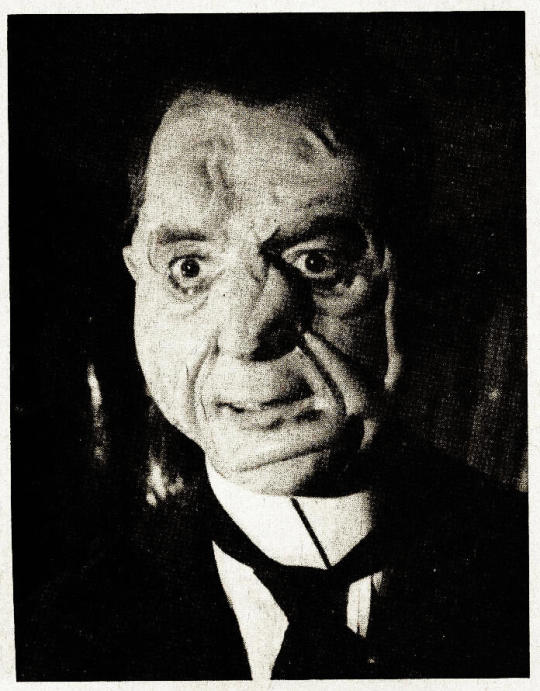#the horrible dr hitchcock
Text
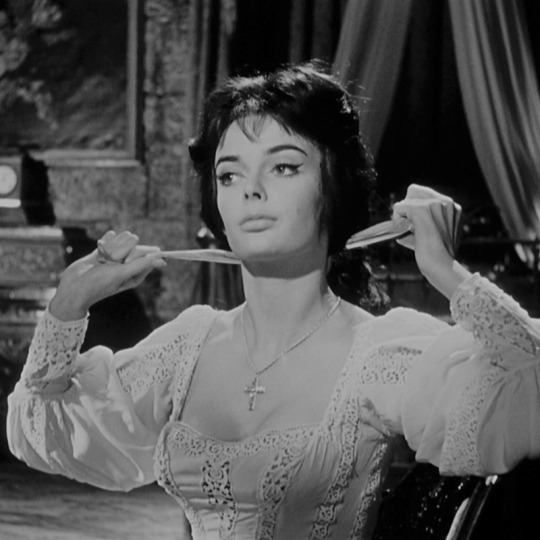



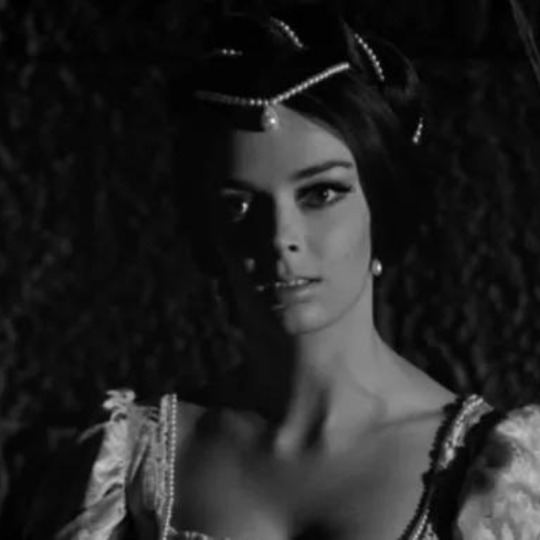


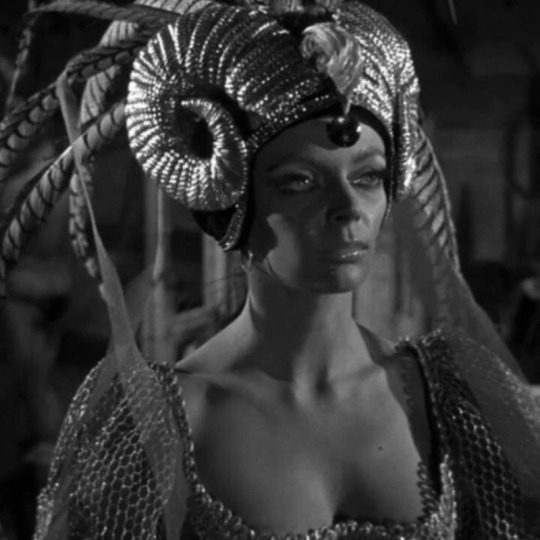
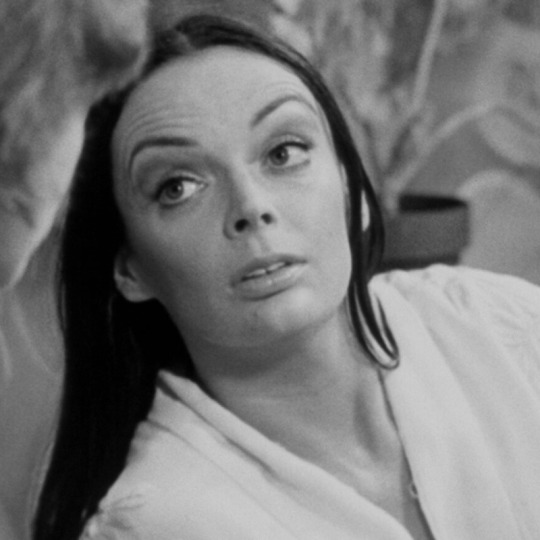
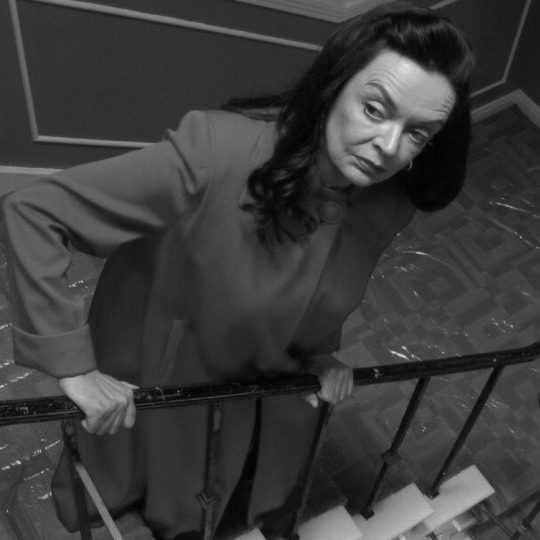
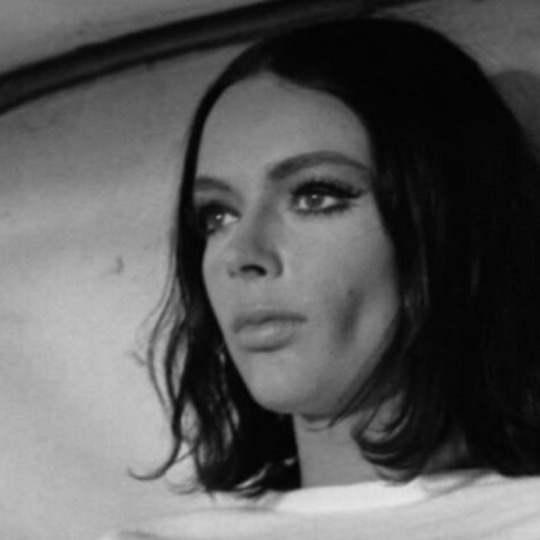

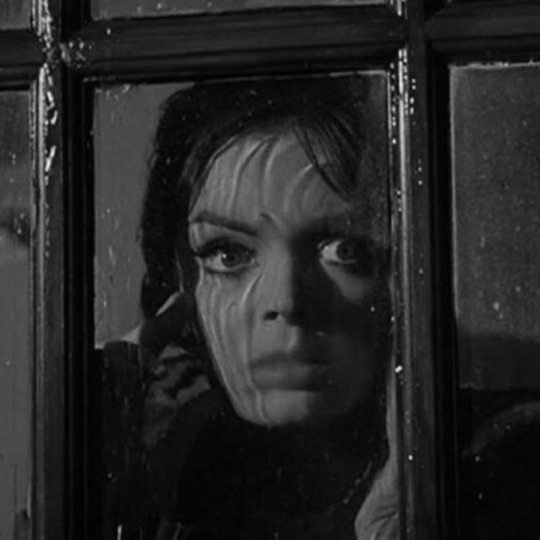
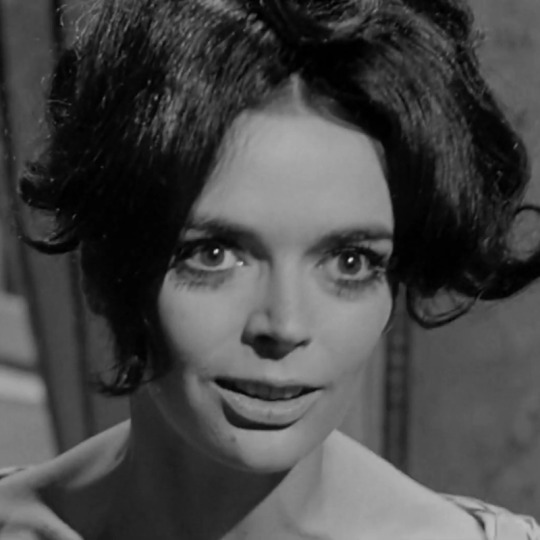
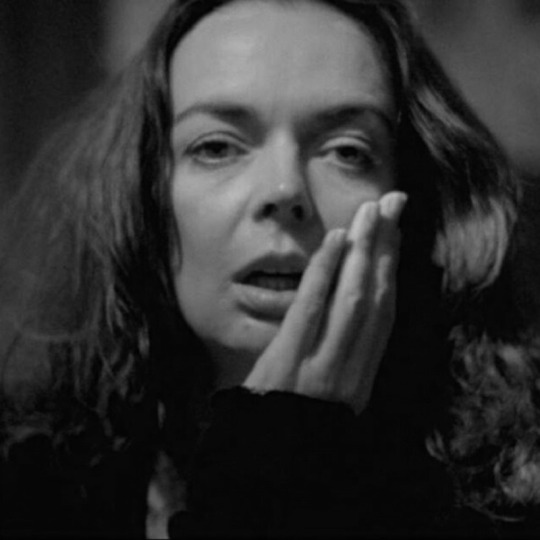
put some respect on this italian gothic horror queen barbara steele's name
#an icon#a horror icon#horror#horror movies#the pit and the pendulum#black sunday#castle of blood#nightmare castle#the long hair of death#the horrible dr hitchcock#shivers#the butterfly room#the she beast#piranha#the ghost#silent scream#curse of the crimson altar#horroredit#moviesedit#filmedit#cinema#gothic horror#gothic#italian horror#barbara steele
273 notes
·
View notes
Text
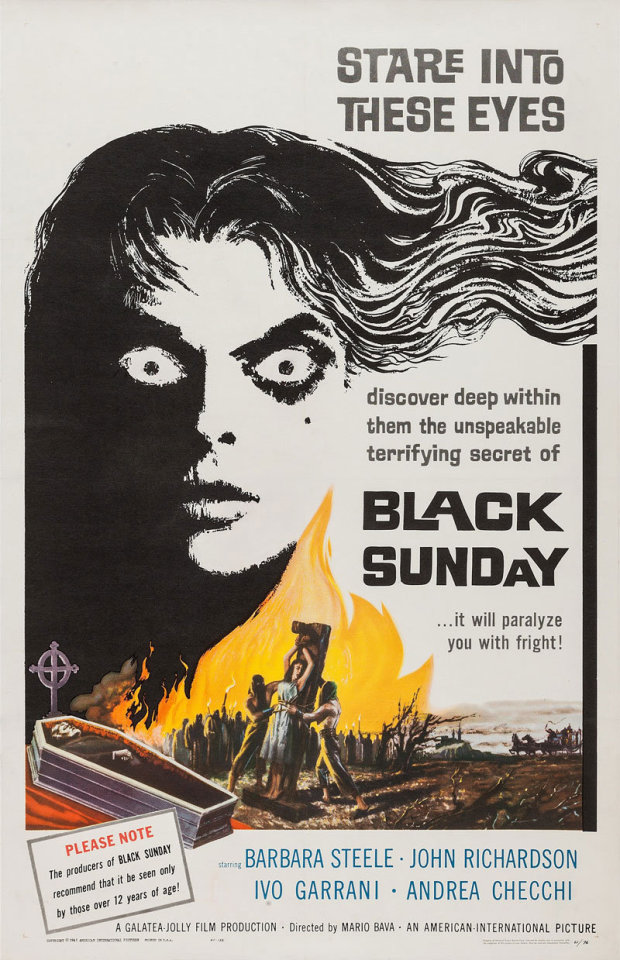

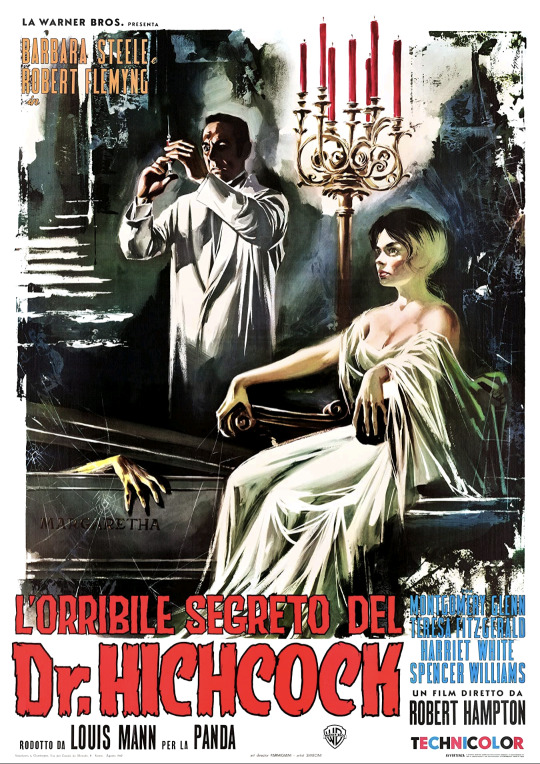
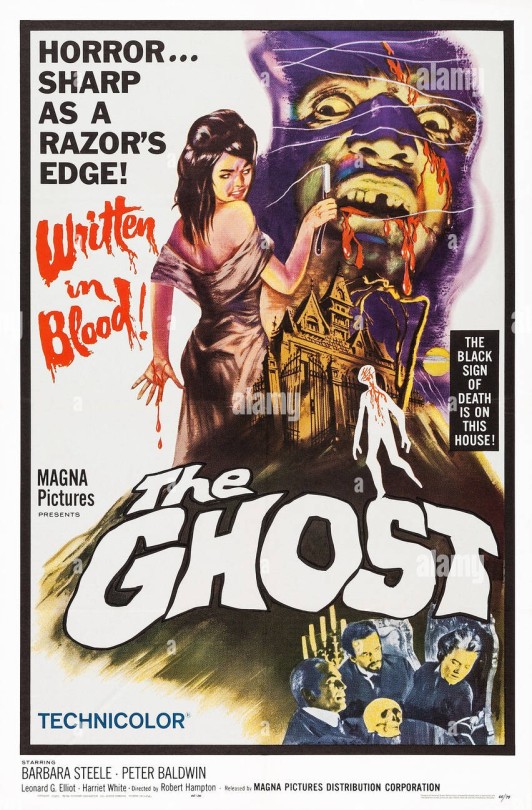

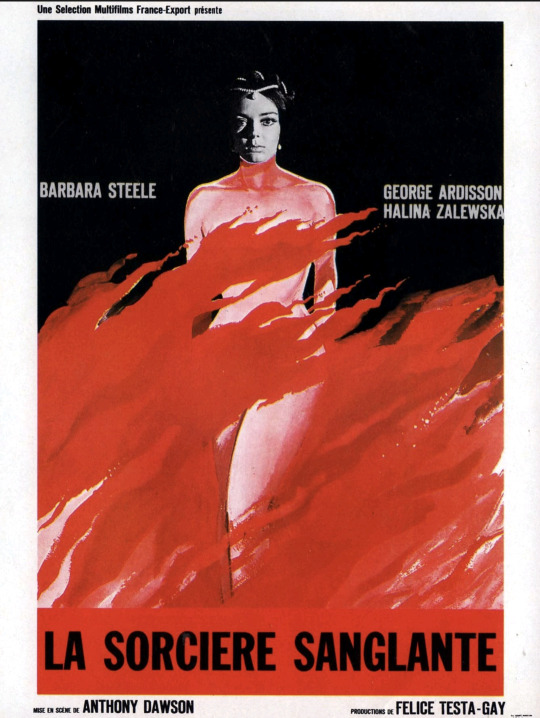
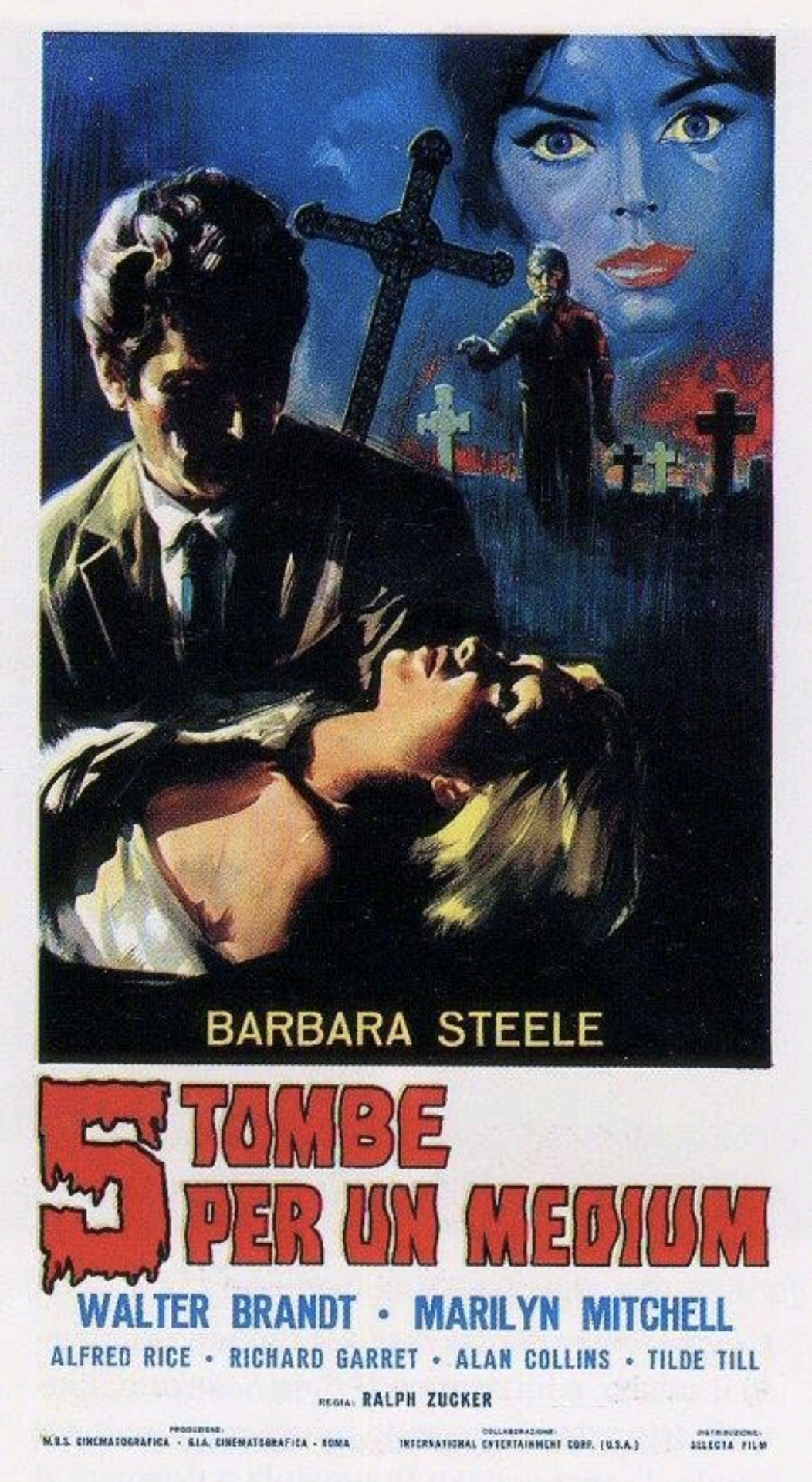


Barbara Steele in gothic horror.
#Barbara Steele#black Sunday#the pit and the pendulum#the horrible dr Hitchcock#the ghost#castle of blood#the long hair of death#terror creatures from the grave#nightmare castle#an angel for Satan#Mario bava#Roger corman#riccardo freda#antonio margheriti#massimo pupillo#mario caiano#gothic horror#gothic#horror movie posters#60s horror#horror
177 notes
·
View notes
Text
Every "Title of your sex tape" joke in Brooklyn Nine-Nine
"Kind, sober and fully dressed", Jake to Amy
"I'm sorry about tonight", Jake to Amy
"It's not your fault, I was terrible", Jake to Amy
"I'm horrible at this, when can we stop", Jake to Amy
"Ah, well done", Jake to himself
"I'm with someone and nothing is going to happen", Jake to Amy
"This better not bite me in the ass", Jake to Amy
"Uh oh, hope it doesn't get too sexual", Jake to Amy
"Blast of cold air coming out of that box", Jake to Amy
"Why doesn't your mouth work", Jake to Amy
"I hope it wasn't a mistake", Jake to Amy (right after they fuck for the first time)
"I just got it out of the vent to rub it in your faces", Jake to Amy
"One more 'but' and you're in contempt", Jake to the judge at his trial
"I'm so confused, I don't know what's happening right now", Jake to Amy
"I'm shaking right now, I'm definitely going to cry" Amy to Jake
"Seriously, what is taking so long?" Jake to Amy
"My mother has a fantastic basement", Jake to Holt
"I came alone", Jake to Jimmy Figis
"That's not how holes work", Jake to Boyle
"Why don't we take this map and this sextant and chart a course to the restaurant", Holt to Boyle
"Did not work at all but I love that you attempted it" Jake to Holt
"Jake and Amy are getting married tonight", Boyle to himself
"Sorry, that came out weird", Jake to Holt
"It's hard for some people", Jake to a therapist
"It just slipped out", Rosa to Boyle
"I came as fast as I could ", Jake to Amy
"There's not even any soft parts in the middle we could pull out", Jake to Hitchcock and Scully
"Grabbed whatever and yanked", Boyle to Dr Oliver Cox
"Just show me the tip", Jake to Holt
"She's coming, hide!" Jake to Holt
"Quite hard upon me", Jake to himeself
"Demon in your jeans", Jake to his father
"Cockpit Larry and the mile-high stewardi", Jake's dad's actual sex tape
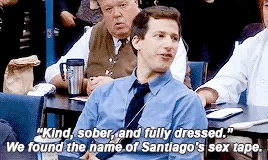
Weird that Doug Judy and Gina aren't on the list 🤔 🤔
#brooklyn nine nine#brooklyn 99#brooklyn nine-nine#jake peralta#andy samberg#amy santiago#melissa fumero#rosa diaz#stephanie beatriz#joe lo truglio#charles boyle#andre braugher#captain raymond holt#dirk blocker#hitchcock#joel mckinnon miller#scully#hitchcock and scully#chelsea peretti#gina linetti#adrian pimento#jason mantzoukas#doug judy
285 notes
·
View notes
Text
Wrestling with Whedon
Welcome, Scooby Gang!
When we discuss Buffy the Vampire Slayer, it’s impossible to ignore its creator, Joss Whedon. Once considered a nerd god, his fall from grace has stunned fans, leaving them just as heartbroken as those of the Harry Potter franchise. But let’s start from the beginning: who is Joss Whedon? Many consider Whedon the auteur of BtVS, a term used to denote “a film director who influences their films so much that they rank as their author” (OED); think here of Alfred Hitchcock. Although all of Whedon’s projects, including BtVS, were brought to life by an army of creatives, Whedon is still credited as the creator and sometimes writer and director, rendering his name and contributions inseparable from these projects.
Joss Whedon might be one of the worst nepotism babies of television writing, with his grandfather being a writer on shows such as The Andy Griffith Show and The Golden Girls being among his father’s projects. Growing up in New York City, Whedon lived a life of luxury, attending Winchester College, a British boarding school, and graduating from Wesleyan University in Connecticut. Although this all sounds like a peaceful and privileged life, Whedon has also come out to say that his parents “ran the home as though they were in the thick of” “a writers’-room battle” and that if he or his brothers “weren’t funny or entertaining or agreeing with them, they would cut [them] down or turn to stone” (Vulture). Because of his childhood experiences, Whedon says that “he suffers from complex post-traumatic-stress disorder” (Vulture); yet, despite not wanting to discredit his trauma, I don’t believe that this excuses him for how he went on to treat others in his life.
In the 1990s and 2000s, Whedon’s career steadily grew and his cult following of fans with it. With projects such as Buffy the Vampire Slayer (1992, 1997-2003), Angel (1999-2004), Toy Story (1995), Alien Resurrection (1997), Firefly (2002), Serenity (2005), Dr. Horrible’s Sing Along Blog (2008), and Dollhouse (2009-10), Joss Whedon became a god and a king among nerds and the comic-book artist Scott R. Kurtz even designed a highly successful shirt in 2005 that read “Joss Whedon is my Master Now.” Even within the workplace, “a sort of cult of personality formed around Whedon” where “the standard reaction to Joss was worship” (Vulture). During this time, many of Whedon’s projects did not succeed to the extent that many believed they should have, beginning with the “painful” interpretation of his vision for the original BtVS movie, as Kai Cole, his ex-wife, put it (The Wrap), and continuing through to the mishandling and cancellation of Firefly. As a Vice article puts it:
“The culture of liking Joss Whedon was at this point already about defending him from various enemies—networks who canceled his shows, actors who he claimed said his lines incorrectly, or improvised too much. [...] His success was a symbol of success for liberal nerds everywhere, a sign that comic books and genre fiction could be taken seriously by the world at large. If you were wrapped up in that fandom, any criticism of Whedon became an attack on everything that nerds love, and it’s a dynamic that doesn’t exist only in the past tense.” (Vice)
This passionate and often obsessive fanbase aided Whedon’s breakthrough into mainstream culture in the early 2010s, when, within a single year, Whedon released three very different yet successful projects: The Cabin in the Woods (2012), a horror movie satire, Much Ado About Nothing (2012) a black and white DIY production of a Shakespeare classic, and The Avengers (2012), the renowned Marvel superheroes film. This year marked the height of Whedon’s career, with his following projects slowly marking his downfall.
In 2015, with the release of The Avengers: Age of Ultron, Whedon encountered his first backlash and the first indications of flaws in his feminism. Viewers labelled the film as sexist because of a scene where Black Widow claims to be monstrous since she cannot bear children. Two years later, in 2017, Whedon’s scrapped 2006 Wonder Woman script leaked, and those who read it once again saw his portrayal of female superheroes as sexist, this time regarding his script as a nerd’s wet dream. Later that same year, Kai Cole, Whedon’s ex-wife, released a public statement about her relationship with Whedon and revealed his numerous affairs and over a decade of lying. In this article, Cole explains that they met in 1991 and were married for over twenty years before separating. In this time, spanning the most successful years of Whedon’s career, Kai Cole says: “I loved him. And in return, he lied to me. A lot” (The Wrap). Cole believes that “he used his relationship with [her] as a shield [...] so no one would question his relationships with other women or scrutinize his writing as anything other than feminist” (The Wrap). Whedon even did the opposite and used his feminist reputation as a defence in his marriage when Cole was at times “uncomfortable with the attention Joss paid other women” (The Wrap). She elaborates that “he always had a lot of female friends, but he told me it was because his mother raised him as a feminist, so he just liked women better. He said he admired and respected females, he didn’t lust after them. I believed him and trusted him” (The Wrap). Sadly, Whedon’s later projects—and even earlier projects, although viewers did not notice it—revealed that he did not solely admire and respect strong female characters but sexualized them for his own satisfaction.
Whedon’s reputation as a feminist was so strong that he had even previously received awards for his feminist efforts, notably when “Equality Now gave him an award in 2006—presented by Meryl Streep—for his efforts as a male feminist” (Vice). Cole wanted to correct this vision of Whedon, who, as she says, “never conceded the hypocrisy of being out in the world preaching feminist ideals, while at the same time, taking away [her] right to make choices for [her] life and [her] body based on the truth” (The Wrap). In the end, Cole only desired to warn against the previously normalized worship of her ex-husband and explained, “I want to let women know that he is not who he pretends to be. I want the people who worship him to know he is human, and the organizations giving him awards for his feminist work, to think twice in the future about honouring a man who does not practice what he preaches” (The Wrap). Cole’s statement was the fandom’s wake-up call, but many continued worshiping Whedon, simply acknowledging that he was human and made mistakes. At this point, all we knew was that he cheated on his wife—it was sad, but it was not anything out of the ordinary for celebrities and the average person alike.
Over the years, more women have come forward to share their experiences with romantic or sexual relationships with Joss Whedon. In Cole’s article, she says that Whedon had his first affair on the set of Buffy the Vampire Slayer, and years later, after coming clean about this, he told her, “I was surrounded by beautiful, needy, aggressive young women. It felt like I had a disease, like something from a Greek myth. Suddenly I am a powerful producer and the world is laid out at my feet and I can’t touch it” (The Wrap). Whedon has used this feeling of helplessness as an excuse for his mistreatment of the women of BtVS numerous times, explaining elsewhere that “he had felt he ‘had’ to sleep with them, that he was ‘powerless’ to resist” (Vulture). If this reminds you of rapists blaming their actions on their victims’ clothing, professions, or behaviours, saying they couldn’t control themselves, you’re not the only one. Even as a younger man at university, “he admired strong women like his mother, yet he’d discovered he was capable of hurting them, ‘usually by sleeping with them and ghosting or whatever’” (Vulture). In the accounts from women who dated Whedon after his marriage ended, “he was not the hero they had read about in the press, the one who wanted to see women in control; he was more like the cold-blooded men he depicted in his work” (Vulture), and the Whedon at Wesleyan sounds a lot like Parker Abrams from early season four, or even Angel right after he lost his soul. Since his marriage ended, Whedon has sought treatment for a love and sex addiction, a path also taken by celebrities such as “James Franco, Kevin Spacey, and Harvey Weinstein” (Vulture). If Vulture’s article was more recent, I am sure Kanye West would also be on that list. Additionally, celebrities such as Russell Brand, David Duchovny, Tiger Woods, and Rob Lowe have also sought treatment for the same addiction, with many of these celebrities only doing so in response to a cheating scandal. Whether Whedon has healed and grown in this regard is unbeknownst to us, but many before him paved this path to redemption in the media’s eyes.
The same year as Cole’s statement, Justice League (2017) came to theatres, which Whedon later labelled as “one of the biggest regrets of his life” and would contribute considerably to his downfall (Vulture). The original director of the film was Zach Snyder, who had his own group of devoted and worshiping fans, but he had to drop the project to be with his family after his daughter committed suicide, so Whedon took over the post-production duties. Whedon did more than oversee the final touches, though, and instead made drastic changes to the film. After viewers were disappointed by Whedon’s version, they demanded to see Snyder’s, which the studio released in 2021; yet, before its release in 2020, the cast began speaking out about their experiences with Whedon. What precipitated the avalanche of testimonies regarding Whedon’s workplace behaviour was a July 2020 tweet by Ray Fisher saying that “Joss Whedon’s on-set treatment of the cast and crew of Justice League was gross, abusive, unprofessional, and completely unacceptable.” Following Fisher’s statement, allegations of racist treatment of the actor and character surfaced, and other actors came forward with their experiences. Suddenly, the fans who worshiped Snyder were attacking Whedon online, and those who previously worshipped Whedon weren’t sure what to do. Allegations of Whedon abusing his power continued to emerge over the next few months, but what put the nail in the coffin holding Whedon’s reputation happened in 2021 when Charisma Carpenter went to Twitter to rehash her experiences with Whedon on the set of Angel. This was not the first time she had discussed his “casually cruel” behaviour or her wrongful dismissal; in fact, “the actress has been talking about it with fans and reporters for more than a decade” (Vulture), but it was nonetheless the final straw. By the time the first half-season of The Nevers (2021) premiered on HBO, promising Whedon’s return to television, Joss Whedon had already stepped down as the showrunner, and the marketing did not acknowledge his involvement. In the year and a half since its airing, HBO has cancelled the show and removed the already aired episodes from their library—HBO, at the very least, is treating Whedon to the full cancellation treatment, and we will see who follows suit.
But what does this all mean to the fandom and scholars? In truth, no one is sure, but they have been asking just that for the past two years. Since so many people around the world love BtVS so much and yet are so deeply disappointed in what has come to light about Whedon, many people have decided to divorce the art from the artist, completely ignoring Whedon’s role in its production, or they have erased BtVS from their lives. These are both flawed responses. The first response, where people have separated the art from the artist, neglects the richness of potential scholarship or understanding that becomes available by analyzing BtVS alongside what we now know about Whedon. As one article explains, “the belief that [Buffy’s] story was something other than a projection of his psyche is ultimately just another fantasy. Whedon did understand pain — his own. Some of that pain, as he once put it to me, ‘spilled over’ into the people around him. And some of it was channeled into his art” (Vulture). There is new and rich nuance to BtVS that fans and scholars alike should not ignore. The second response ignores the contributions of everyone else who worked on the show; it feels inappropriate to disregard the effort of these writers, producers, directors, makeup artists, costume designers, set designers, actors, and the list goes on, especially if they continued to contribute to a project they saw the merits in despite the work environment being less than ideal or even toxic and abusive. If they endured Whedon’s cruelty during BtVS’ production, then we should acknowledge and be thankful for their work rather than dismiss it because of their boss’ wrongdoings.
After all, BtVS now belongs to the fans and scholars who have made it what it is, and although people throw this sentiment around, it is grounded in literary theory, that being Roland Barthes’ ‘Death of the Author’ essay from 1967. In this essay, Barthes puts forth that we, as fans and scholars, should not study a work in tandem with its author and that an author does not exist in the way we think of it. It’s a complicated essay, so let’s pick out some pieces that help us understand BtVS and Whedon. Barthes makes two foundational statements about authorship: “writing is the destruction of every voice, every origin. […] this gap appears, the voice loses its origin, the author enters into his own death, writing begins,” and “the text is a fabric of quotations, resulting from a thousand sources of culture. […] the writer can only imitate an ever anterior, never original gesture.” According to Barthes, the author does not create anything new but instead translates, borrows, and recontextualizes what already exists; further, he is not doing so with his own voice, but he is merely the medium through which these previous sources move—the author dies as the work is born. Relating this to BtVS, we must remind ourselves of what the writers claimed to be their inspirations, but also what we see within the series since the show as a whole may appear new despite everything within it has previously existed and carries meaning with it. All those pop culture references that the show makes seem inconsequential but may be much more significant than we previously understood since the significance behind these references impacts the meaning of BtVS.
BtVS’ authorship is further complicated when we consider Barthes’ assertions that “to assign an Author to a text is to impose a brake on it, to furnish it with a final signified, to close writing. […] once the Author is found, the text is ‘explained.’” Although I just explained how I believe that we should acknowledge Whedon’s influence on BtVS, I want to emphasize that we will never truly understand the collective authorship of BtVS since so many talented writers were in the writing room, many individuals worked on the project, and even the viewers were able to impact the show’s development. Finally, Barthes makes the point that art belongs to the fans, saying that “the unity of a text is not in its origin but in its destination,” and I understand this to mean that the meaning of art is not decided by the author or writer but by the reader or watcher, and gives them what they need from it. Each BtVS viewer came to the show from a different place, and yet so many people found something special in it which spoke to them, and the writers may claim to have meant these things or not, but the meaning, or “unity of a text,” is not dictated by the writers, but by the fans, the “destination.”
Joss Whedon may have written the original Buffy the Vampire Slayer script thirty years ago, and the show may have concluded twenty years ago, but BtVS never truly belonged to Whedon. BtVS has always belonged to the viewers, fans, and scholars, so although Whedon’s actions have added complications to the series and how people now enjoy it, they should not stop anyone’s enjoyment of it.
That’s that for this Sunnydale study session!
Liz
TL;DR: Whedon sucks and I recommend you read these articles:
https://www.vulture.com/article/joss-whedon-allegations.html
https://www.thewrap.com/joss-whedon-feminist-hypocrite-infidelity-affairs-ex-wife-kai-cole-says/
https://www.vice.com/en/article/v7d34y/when-joss-whedon-was-our-master
88 notes
·
View notes
Photo

Hello and welcome listeners to Episode 159 of Journey with a Cinephile: A Horror Movie Podcast. In this episode, your tour guide, David Garrett Jr., continues to celebrate Italian Horror Month with installment #15. The Featured Reviews are Baron Blood (1972) and V/H/S/99 (2022). The latter isn’t from Italy, but I couldn’t find a 2022 release to pair up. I also am a fan of the found footage series. Also on this episode are Mini-Reviews of The Horrible Dr. Hitchcock (1962), X (2022) and Animal Room (1995). I hope you enjoy coming on this journey with me! Listen on Apple Podcasts: https://podcasts.apple.com/us/podcast/journey-with-a-cinephile-a-horror-movie-podcast/id1494532023 Listen on Stitcher: https://www.stitcher.com/podcast/journey-with-a-cinephile-a-horror-movie-podcast Listen on Spotify: https://open.spotify.com/show/4RqRjspMHkYEOV87H9DbOk Listen on Google Podcast: https://podcasts.google.com/feed/aHR0cHM6Ly9hbmNob3IuZm0vcy9jN2I0ZTBjL3BvZGNhc3QvcnNz Listen on Amazon Music: https://music.amazon.com/podcasts/ac675c61-2b86-41ce-8db8-cc4c8c407733/JOURNEY-WITH-A-CINEPHILE-A-HORROR-MOVIE-PODCAST?ref=dm_sh_daISjUKUAEJkgMjFcaN54vVP5 Listen on Anchor: https://anchor.fm/david-michigan-garrett-jr Or here's the RSS Feed: https://anchor.fm/s/c7b4e0c/podcast/rss Read more: https://horrorreview.webnode.page/news/episode-159-baron-blood-v-h-s-99/ #journeywithacinephile #journeywithacinephileahorrormoviepodcast #italianhorrormonth #baronblood #vhs99 #thehorribledrhichcock @shudder #x @xmovie #animalroom #horror #horrormovie #horrormovies #horrorfilm #horrorfilms #horrorfan #horrorfans #horrorreview #horrorreviews #horrorreviewer #filmreview #filmreviews #filmreviewer #nothorror #horrorcommunity #horrorfamily #horrorpodcast #horrorpodcasts #podcast #hashtag https://www.instagram.com/p/ClOH6exuNbl/?igshid=NGJjMDIxMWI=
#15#journeywithacinephile#journeywithacinephileahorrormoviepodcast#italianhorrormonth#baronblood#vhs99#thehorribledrhichcock#x#animalroom#horror#horrormovie#horrormovies#horrorfilm#horrorfilms#horrorfan#horrorfans#horrorreview#horrorreviews#horrorreviewer#filmreview#filmreviews#filmreviewer#nothorror#horrorcommunity#horrorfamily#horrorpodcast#horrorpodcasts#podcast#hashtag
0 notes
Text
Is it raining right now?
It is actually.
Where you live, is it currently daytime or nighttime?
It’s early morning.
Do you own any pets? Types? Names?
Three kitties: Ramona (tortie), Friday (black cat), Saké (grey and white cat)
What do you do for work?
I work at a university and that’s all I will disclose.
What’s the worst illness that you’ve ever had?
I haven’t had anything too horrible but the worst has been Strep throat. That shit hurts.
Do you have a few close friends, or many acquaintances?
I mean, both?
Do you enjoy reading? If so, what do you like to read?
I don’t.
Name a few movies that you’ve enjoyed more than once.
Wet Hot American Summer, Clueless, Romy and Michele’s High School Reunion.
What kinds of music do you listen to?
A lot of different kinds.
What are some of your favorite foods to eat?
Sushi, crab legs, thai food, tacos, potatoes in any form.
What time do you typically go to bed?
Between 10 and 11 on work nights.
Do you have your license? Are you able to drive?
Yes, and yes.
Where would you like to take a vacation to?
I would love to go to Hawaii but I know that’s kind of frowned upon right now. But I do have family there, so it wouldn’t be strictly for “tourism” purposes.
My favorite color is purple…what’s yours?
Purple.
How tall are you?
5'2".
----------------------------------------------------------------------------------------
That was short here’s another:
Do you own any drinking glasses with a brand logo on them?
I do. I have some with the Cubs logo on them, and ones with the Dr. Pepper logo, and some with the Miller Light logo. I think that’s it, I can’t think of any others.
Have you had any alcoholic drinks within the last week?
I haven’t.
What was the last kind or helpful thing that someone else did for you?
My husband made me my coffee this morning.
Do you own anything from IKEA?
Not anymore.
What fast food restaurants are there in your hometown?
All the basic ones and some local ones, too. McDonalds, Taco Bell, Burger King, Wendy’s, KFC, Popeyes, Culvers, Dairy Queen, White Castle, Chipotle, Jimmy Johns, Subway, Quiznos, Potbelly, Portillos, Starbucks, Dunkin, Pizza Hut, Little Caeser’s, Dominos, Papa Johns, Wing Stop. Probably others I’m forgetting.
Is there anyone who often teases or makes fun of you, in a nice way?
My husband and close friends tease me a lot, but it’s all good-natured.
Can you recall the last time you had to change a lightbulb in your house?
I don’t, Mark usually takes care of that.
What was the last task that you required the use of scissors for?
I can’t remember honestly.
As a child, did you ever own any Ladybird books?
Nope, I’ve never heard of them.
How about Enid Blyton books?
Same.
Look around the room and name any item that’s grey.
The stapler on my desk is grey.
Does anyone close to you have their birthday in October?
My friend Lolly’s is the 30th! Also my brother in law is the 7th but fuck him.
Do you use any heat powered tools on your hair?
Very rarely.
Do you enjoy any old films that are in black & white? Which ones?
Yep, a few. I like watching them with my dad. To Kill a Mockingbird is one of my favorites, and some older Hitchcock classics as well. And some Charlie Chaplin and Marx Brothers movies.
What was the last film or TV show you watched, that made you giggle?
The Office.
Do you know what any of your close friends did yesterday afternoon?
I assume they were all working.
Can you recall the last time you woke up in a bad mood? Why was that?
This morning.
What was the last book you finished reading?
Oops.
^ How long did it take you finish it?
--
Who was the last person to send you a message with a heart emoji?
My friend Sarah.
How long have you had the mobile phone that you currently use?
A little over 2 years.
Does your hometown have many good bookshops?
Yes.
Do you have any specific plans for this evening?
As of a few minutes ago, yeah. My sister invited me our to dinner.
1 note
·
View note
Photo
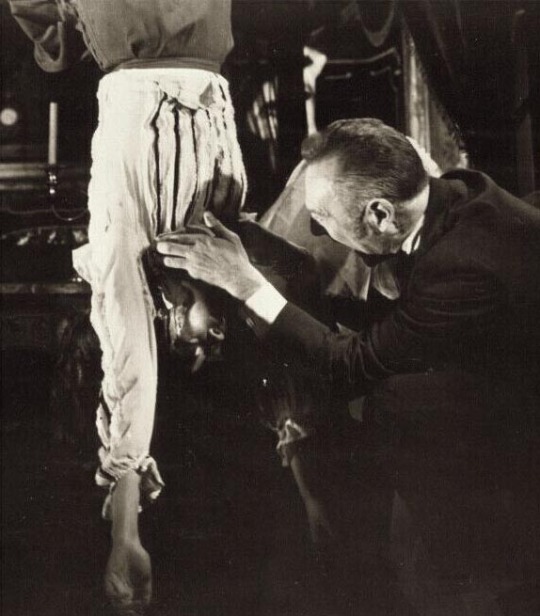
858 - "Et tu verras au bout d'une bonne demie heure ce satané hoquet te sera complètement passé!" lui assura Michel qui avait toujours un remède de grand-mère pour les petits tracas de la vie quotidienne.
(via Slobber, Drool, Drip!)
1 note
·
View note
Photo

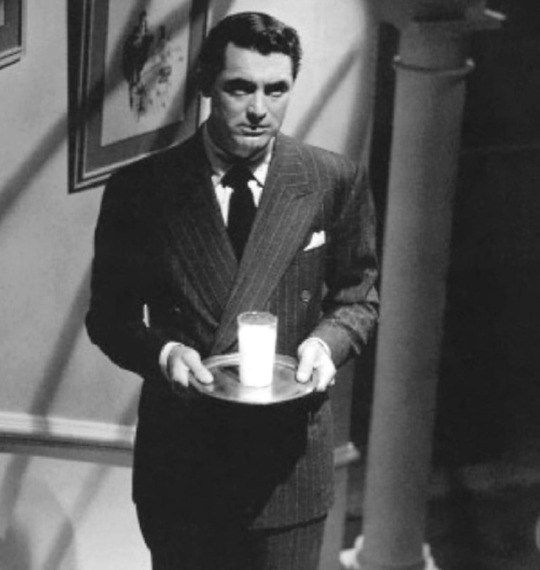
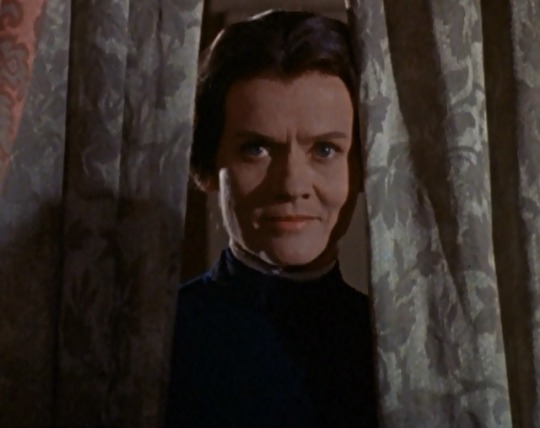

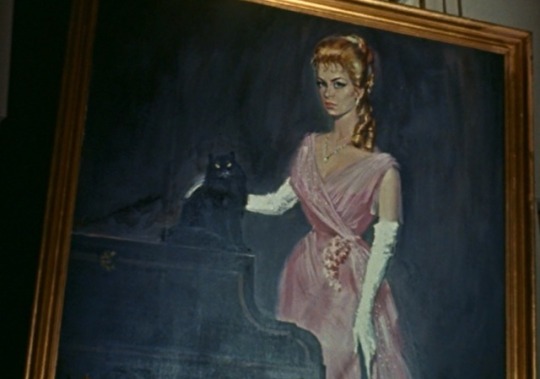

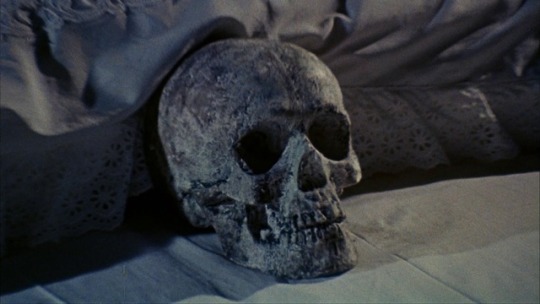



“L'orribile segreto del Dr. Hichcock” - a tribute to Alfred Hitchcock
“Suspicion” / “Rebecca” / “Vertigo” / “Under Capricorn” / “Foreign Correspondent”
#l'orribile segreto del dr Hichcock#the horrible dr hichcock#riccardo freda#alfred hitchcock#Robert Flemyng#cary grant#suspicion#rebecca#vertigo#under capricorn#foreign correspondent#judith anderson#harriet medin
20 notes
·
View notes
Text
What a Live-Action Tartarus would look like: or, the complexities of Cosmic Horror in Middle Grade Fiction
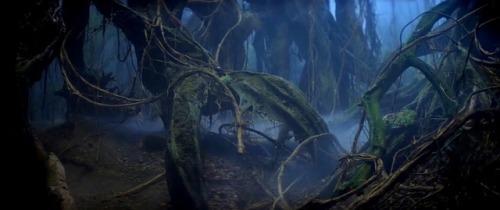
I've always been really interested in film- it's my dream to work in this field in the future. So of course with news of an adaptation of this series so close on the horizon, of course I had to think about how, if for some absurd reason, I was personally hired to direct/design an episode, how some of my favorite scenes in this series would they look in live action form.
Some context: This is after Percy and Annabeth's fall in Tartarus. I think the scenery of this place is very interesting, yet extremely complicated to replicate in live action form. Tartarus, at least Rick's version of Tartarus, is horrifying when you think too hard about it, especially in a middle grade fiction series where characters can't even say the word "dam" properly, and monsters dissolve in a dust of sand. I think Tartarus is very similar to Lovecraftian horror. It's like, the idea that something is so terrifying that a human mind can’t even perceive it. You can't accept it because it's just too horrifying. You can’t even describe it because there are no words for it or things to compare it to in our world.
I made some personal rules for myself. Firstly, I think obvert violence thrown in your face is overrated. Any PJO or HoO series would be rated PG, at most, PG-13. Using these guidelines, I tried to construct a version of Tartarus that isn't fueled on gore or blood, but more this dark, deep nothingness.You know how, in many YA movies/tv shows, especially those trying too hard to be "edgy", we always make fun of how dimly lit the scenes are? Well, these scenes in Tartarus should, for once, actually be like that- so dark it almost makes our(as an audience) eyes hurt. Everything around our main characters are dark and hazy. Fog swims around them.
But we don't see much of this environment, no matter how dark it is. Everything is filmed so up close, the camera sticking so close to the characters it's uncomfortable. We are stuck with Percy and Annabeth in this huge, intangebly huge space. Two small ants in this great, unescapable landscape. Have y'all watched Stranger Things? you know that strangely filmed darkness we see when Eleven goes into the upside down? Tartarus should be filmed very similar to that. Everything except for Annabeth and Percy should be engulfed in black, pure darkness all around, when the two first enter this place. It's only when Annabeth and Percy stay too long, finally perceive this landscape for what it is, the body of Tarturas himself, that we as an audience sees this too. It's not abrupt or sudden. It's a gradual, uncomfortable recognization. The music that has always been in the background gets a little louder, pounding a little too similar to the beat of a human heart. We hear wet, sloshing, horrible sounds every time Percy puts his foot down. Dark liquid and goop drips from all around, and the camera stays just a little bit longer on these elements. The darkness slowly lifts, just a bit.
The Arai curses fight scene is, for me personally, the scariest scene in everything Rick wrote. It's utterly horrifying to think too long about. Again, I don't think it needs to be overtly graphic or visual.When you really think about it, there is so much death and killing in every one of the PJO and HoO books. But this sort of murder is made child-friendly in every way- monsters resolve into dust only to be reborn, death is written off in a few paragraphs, kids get shoot, cut, burned, maned, and we just ignore it. This scene really brings us to the reality that these monsters are still beings, about the sheer numbers of monsters just Percy and Annabeth themselves have brought to death. In a live-action adaption, this realization and horror should be replicated.
(more under read more ↓↓↓↓↓↓)
At first, we think this is just a normal fight. Percy and Annabeth have went through plenty of those already- this is HoH, by now the audience has watched 12 year old Percy fight a god, 15 year old Percy become almost invincible- a little run-in with some winged monsters is just another Tuesday. The music increases, but it's still just regular, action-movie fight scene music (behind it is a heavy dropping beat. Again, just like a heartbeat. Is it Percy's heartbeat? Is it Tartarus's heartbeat? we can't tell). But as soon as Percy takes that first swing, we know something is wrong. think this scene would be interesting if the camera switches jarringly from Annabeth's pespective to Percy's. When Annabeth strikes down the arai that curses her with blindness, we are suddenly plunged into darkness too. Sudden, startling darkness. It is quiet, too. too quiet. We are engulfed in pure nothingness. It's so sudden and holds out for so long that the audience must think something is wrong. They get uncomfortable, squirming in their seats. Is their tv broken? Did they accidentally click mute? We see dim flashes of light, waving like somebody stumbling around in the dark, with a dim flashlight,but they are too gone so suddenly.
The camera swings, and now we see this scene from Percy's perspective, but everything is all wrong. The music is not this dramatic, action music we are use to, but instead, while the beat is the same as before, we are only left with this uncomfortable, startling heartbeat. It goes: dun, dun, dun. Percy is in pain: you know when you're in so much pain everything is fuzzy at the edges and you don't know if what you're percieving is real or just a halluciation? This scene is that feeling times a thousand. The techincal term is called a dolly zoom, but more casually a "Vertigo shot" the camera pulls back sudden at the same time it zooms in. It is often used by Hitchcock, espeically in the movie Jaws. You can google it, but what we get is this effect where the subject (Percy, here) not quite moving, but the background shifting around him so quickly it almost gives you motion sickness. The camera then spins jarringly around him, again, so quickly it's dizzying. we don't get to see too much. There are so many of these creatures, coming from all sides. It's too much. Behind this still pumping heartbeat, there is RINGING. God, so much ringing, in your ear. Because of all this action happening on screen, again it takes the audience a moment to even perceive this sound. But when they perceive it, they can't unheard it. it's so loud, it comes from everywhere, it's getting higher in pitch, it's uncomfortable, you're about to throw up, yet just like Percy you're pinned to the spot, unsure what to do, as everything goes out of your control.
Olf. That was a long one. But for a little TL;DR, undershowing is often scarier. There is a quote, I'm not too sure where it first came from since it sounds much too smart for me to think up myself, but to paraphrase, it goes something like: "The scariest thing in the world is what our imaginations can conjure up." Here's a simpler one for you: "The most frightening monsters are the ones that exist in our minds." I've had the personally experience of laying awake too many nights, stuck in a mind loop, scaring myself half to death with my own thoughts. Let me repeat this again: A story, even a horror one, doesn't need excessive blood, guts and sexy stuff thrown at it to make it dark and horrifying. A lot of this post was inspired by talking with a lot of fellow PJO fans, you know who you are :), while also being influenced by this great video: https://www.youtube.com/watch?v=8OTO7Rqln9Q. It talks about the complexities of writing comic horror. I highly recommend watching it. Also, for a few examples of this kind of horror done well, I recommend Birdbox, and also, strangely the ending fight of Spiderman Far From Home. I won't spoil it, but it was a very well directed scene that really made me feel jarred and uncomfortable as I watched it. I've also heard The Thing is good at this, but I really do scare myself too much, and can't watch truly scary horror movies without freaking myself out. Anyway, if you've made it this far, I hope you all have a nice day/ night and comment if you want me to write out any other scenes from PJO or any Rick books. Film, whether that's in screenwriting/cinematography/set/costume design, or, most of all directing, is both my dream and plan, so this is good practice.
12 notes
·
View notes
Note
any advices about goth films books and movies? i wanna be 100% goth
Gothic Books
1. Dracula (Bram Stoker), work of 1897.
2. The House of the Seven Gables (Nathaniel Hawthorne), work of 1851.
3. The Raven (Edgar Allan Poe), work of 1845.
4. The Flowers of Evil (Charles Baudelaire), work of 1857.
5. Goth Chic (Gavin Baddeley), work of 2002.
6. Goth: Identity, Style and Subculture (Paul Hodkinson), work of 2002.
Gothic Movies
1. The Crow (1994), Action/Fantasy
2. The Horrible Dr. Hitchcock (1962), Horror/Italian
3. Black Sunday (1960), Horror/Cult
4. Elvira, Mistress of the Dark (1988), Comedy
5. Crimson Peak (2015), Romance
34 notes
·
View notes
Photo
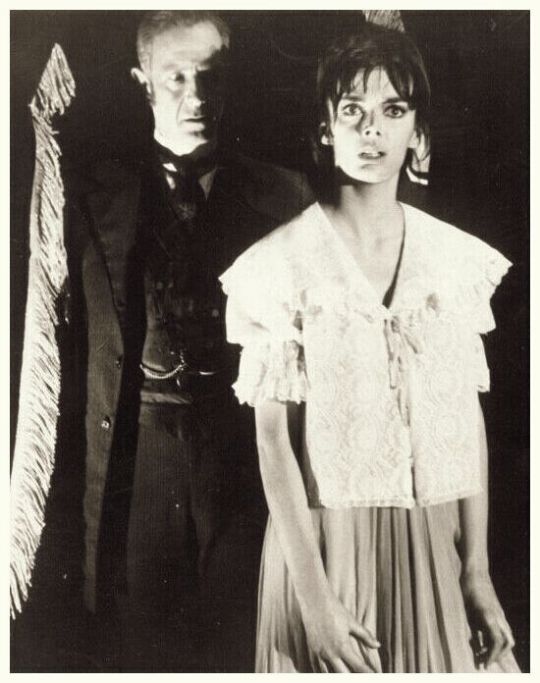
Robert Fleming and Barbara Steele- the HORRIBLE DR. HITCHCOCK (1962)
80 notes
·
View notes
Photo





Happy Birthday Barbara Steele
Barbara Steele (born 29 December 1937) is a British film actress and producer. Famous for her starring in Italian Gothic horror films of the 1960s, her breakthrough performance was in Black Sunday (1960), where she played the dual role of Asa and Princess Katia Vajda.
Additionally, Steele had supporting parts in Federico Fellini‘s 8½ (1963), and appeared on television in the 1991 miniseries Dark Shadows. Steele has appeared in several films in the 2010s, including a lead role in The Butterfly Room (2012) and supporting role in Ryan Gosling’s Lost River (2014).
Steele was born in Birkenhead, Cheshire, England. She studied art at the Chelsea Art School and in Paris at the Sorbonne.
Steele guest starred on various British television shows including the spy drama, Danger Man (aka Secret Agent) starring Patrick McGoohan. She made her American television debut in 1960 as Dolores in the “Daughter of Illusion” episode of the ABC series, Adventures in Paradise, starring Gardner McKay. In that same year she was replaced by Barbara Eden in the Elvis Presley film Flaming Star after a disagreement with director Don Siegel. In 1961, she appeared as Phyllis in the “Beta Delta Gamma” episode of CBS's Alfred Hitchcock Presents. She also had an important role in Federico Fellini’s celebrated 8½ in 1963, and in 1966 appeared in the second-season episode of NBC's I Spy, “Bridge of Spies”.
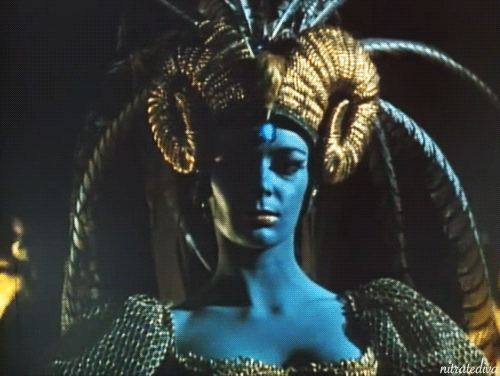
During the 1960s, Steele starred in a string of Italian horror films, including Black Sunday (1960), The Horrible Dr. Hichcock (1962), The Ghost (1963), The Long Hair of Death (1964), Castle of Blood (1964), Terror-Creatures from the Grave and Nightmare Castle (both 1965). She also starred in Roger Corman's 1961 adaptation of Edgar Allan Poe’s short story The Pit and the Pendulum and the British film Curse of the Crimson Altar (1968).
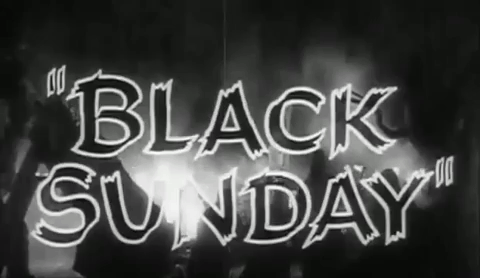
Steele returned to the horror genre in the later 1970s, appearing in three horror films: David Cronenberg's Shivers (a.k.a. They Came From Within) (1975), Piranha (1978), and Silent Scream (1979).

Steele served as associate producer of the 1983 TV miniseries, The Winds of War, and was a producer for its 1988 sequel, War and Remembrance, for which she shared the 1989 Emmy Award for Outstanding Drama/Comedy Special with executive producer Dan Curtis.
Steele was cast as Julia Hoffman in the 1991 remake of the 1960s ABC television series Dark Shadows. In 2010, she was a guest star in the Dark Shadows audio drama, The Night Whispers.
In 2010, actor-writer Mark Gatiss interviewed Steele about her role in Black Sunday for his BBC documentary series A History of Horror. In 2012, Gatiss again interviewed Steele about her role in Shivers for his follow-up documentary, Horror Europa. In 2014, she appeared in Ryan Gosling’s directorial debut, the drama-fantasy thriller film Lost River, in which she portrayed the character Belladonna in a supporting role.
#Black Sunday#8½#Dark Shadows#Federico Fellini#Danger Man#The Horrible Dr. Hichcock#The Ghost#The Long Hair of Death#Castle of Blood#Nightmare Castle#The Pit and the Pendulum#Curse of the Crimson Altar#Piranha#Silent Scream#The Winds of War#War and Remembrance#Dan Curtis#Barbara Steele
19 notes
·
View notes
Text
I just stayed up all night making a list of 100 Movies I Wish Everyone Would Watch because this is what I do with my life now. If anyone is curious I’m putting them below the cut. I have very good taste. That last part is a lie.
DISCLAIMER: This is not a list of 100 movies that I think are the best examples of the craft (although some of them certainly are). This is a list of 100 personal favourites that have moved me personally, deeply influenced me, or I just plain wish more people would see them (for good or for ill). Sorry for including 1 Roman Polanski film, rest assured I’m praying he dies a horrible and painful death asap (and he can take Woody Allen with him).
The Cabinet of Dr Caligari - Robert Wiene (1920)
M - Fritz Lang (1931)
Frankenstein - James Whale (1931)
Double Indemnity - Billy Wilder (1944)
It’s a Wonderful Life - Frank Capra (1946)
Rope - Alfred Hitchcock (1948)
Un Chant D’Amour - Jean Genet (1950)
The Night of the Hunter - Charles Laughton (1955)
Throne of Blood - Akira Kurosawa (1957)
Touch of Evil - Orson Welles (1958)
Some Like it Hot - Billy Wilder (1959)
La Jetee - Chris Marker (1962)
Lawrence of Arabia - David Lean (1962)
Lord of the Flies - Peter Brook (1963)
Rosemary’s Baby - Roman Polanski (1968)
Midnight Cowboy - John Schlesinger (1969)
Cabaret - Bob Fosse (1972)
Jesus Christ Superstar - Norman Jewison (1973)
The Exorcist - William Friedkin (1973)
Phantom of the Paradise - Brian de Palma (1974)
The Omen - Richard Donner (1976)
Logan’s Run - Michael Anderson (1976)
Carrie - Brian de Palma (1976)
Suspiria - Dario Argentino (1977)
Watership Down - Martin Rosen (1978)
Possession - Andrzej Żuławski (1981)
An American Werewolf in London - John Landis (1981)
The Thing - John Carpenter (1982)
First Blood - Ted Kotcheff (1982)
The Dark Crystal - Jim Henson, Frank Oz (1982)
A Nightmare on Elm Street - Wes Craven (1984)
Fright Night - Tom Holland (1985)
Re-Animator - Stuart Gordon (1985)
A Nightmare on Elm Street Part 2: Freddy’s Revenge - Jack Sholder (1985)
The Fly - David Cronenberg (1986)
Night of the Creeps - Fred Dekker (1986)
Withnail & I - Bruce Robinson (1987)
I’ve Heard the Mermaids Singing - Patricia Rozema (1987)
The Lost Boys - Joel Schumacher (1987)
Maurice - James Ivory (1987)
Hellraiser - Clive Barker (1987)
Willow - Ron Howard (1988)
Who Framed Roger Rabbit - Robert Zemeckis (1988)
Akira - Katsuhiro Otomo (1988)
The Adventures of Baron Munchausen - Terry Gilliam (1988)
Archangel - Guy Maddin (1990)
Misery - Rob Reiner (1990)
Thelma & Louise - Ridley Scott (1991)
Terminator 2: Judgement Day - James Cameron (1991)
Fried Green Tomatoes - Jon Avnet (1991)
The Crying Game - Neil Jordan (1992)
The Adventures of Priscilla, Queen of the Desert - Stephan Elliott (1994)
Interview With the Vampire - Neil Jordan (1994)
In the Mouth of Madness - John Carpenter (1994)
Cold Comfort Farm - John Schlesinger (1995)
Sense and Sensibility - Ang Lee (1995)
Matilda - Danny DeVito (1996)
Lilies - John Greyson (1996)
Romeo + Juliet - Baz Luhrmann (1996)
The Hanging Garden - Thom Fitzgerald (1997)
Dark City - Alex Proyas (1998)
EverAfter - Andy Tennat (1998)
The Prince of Egypt - Brenda Chapman Steve Hickner Simon Wells (1998)
Following - Christopher Nolan (1998)
The Blair Witch Project - Daniel Myrick, Eduardo Sánchez (1999)
The Talented Mr. Ripley - Anthony Minghella (1999)
American Psycho - Mary Harron (2000)
Crouching Tiger, Hidden Dragon - Ang Lee (2000)
But I’m a Cheerleader - Jamie Babbit (2000)
Ginger Snaps - John Fawcett (2000)
O Brother, Where Art Thou? - Joel Coen (2000)
Battle Royale - Kinji Fukasaku (2000)
The Devil’s Backbone - Guillermo Del Toro (2001)
Bend it like Beckham - Gurinder Chadha (2002)
Far From Heaven - Todd Haynes (2002)
Hero - Zang Yimou (2002)
Holes - Andrew Davis (2003)
American Splendor - Shari Springer Berman, Robert Pulcini (2003)
Master and Commander: the Far Side of the World - Peter Weir (2003)
Mysterious Skin - Gregg Araki (2004)
Hard Candy - David Slade (2005)
Brick - Rian Johnson (2005)
Little Miss Sunshine - Jonathan Dayton, Valerie Faris (2006)
The Orphanage - Juan Antonio Bayona (2007)
There Will Be Blood - Paul Thomas Anderson (2007)
Pontypool - Bruce McDonald (2008)
Doubt - John Patrick Shanley (2008)
The Loved Ones - Sean Byrne (2009)
Precious - Lee Daniels (2009)
Attack the Block - Joe Cornish (2011)
Stoker - Park Chan-Wook (2013)
Coherence - James Ward Byrkit (2013)
The Babadook - Jennifer Kent (2014)
The Invitation - Karyn Kusama (2015)
10 Cloverfield Lane - Dan Trachtenberg (2016)
Train to Busan - Yeon Sang-Ho (2016)
Get Out - Jordan Peele (2017)
Disobedience - Sebastian Lelio (2017)
Hereditary - Ari Aster (2018)
A Quiet Place - John Krasinski (2018)
#I had to shave off so many good movie’s yall#like adaptation#and catch me if you can#gone girl...#things you can tell about me from this list#I’m gay#I’m a horror nerd#and I’m a Gay Horror Nerd
8 notes
·
View notes


